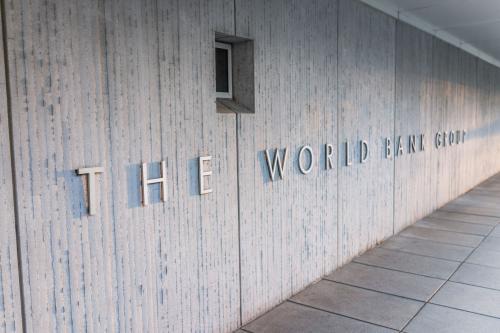One of the most important questions facing political scientists and policymakers today is how developing countries acquire high-quality public sector institutions. Countries rarely succeed in the absence of state institutions that can establish and enforce rules, collect revenue, and provide public services. Wealthy countries have responded to this challenge by focusing the efforts of bilateral aid agencies and multilateral development banks on building and reforming public sector institutions in developing countries.
However, most of these externally-sponsored programs fail during implementation or falter in the out-years, with their achievements often consisting of shallow, cosmetic changes to “institutional forms” (how institutions are organized) rather than improvements in “institutional function” (the ability of public sector institutions to solve public problems). Developing countries create anti-corruption commissions with no intention of identifying or recovering public funds that are stolen; pass legislation that criminalizes human trafficking but fails to investigate or prosecute the most egregious violations of the law; create “one-stop shops” to simplify the process of legally registering a business without addressing more significant challenges to operating a business; and establish courts and appoint judges that are nominally independent while tacitly endorsing interference in the affairs of the judiciary.
In a new article in International Studies Quarterly, my colleagues and I argue that international development organizations contribute to this problem by encouraging many of their developing country counterparts to select performance targets that measure institutional forms rather than institutional functions. Developing countries that are eligible to receive grants and below-market rate loans have strong incentives to meet targets because they must do so to access financing. As a result, they often select easy targets that allow them to declare victory instead of more difficult targets that measure whether institutions are solving public problems. Countries that are not eligible to receive this type of concessional financing, by contrast, have no such incentive and are more likely to choose difficult targets that are more relevant to the lives of their citizens.
To test this argument, we collected data on World Bank-funded projects in the natural resource and environmental management sector completed between 2003 and 2011 and contained more than a thousand specific and measurable targets of institutional development. We then coded each of these targets according to whether they measured institutional form or function. We found that countries that depend on concessional financing are more likely to select shallow, cosmetic targets. This finding holds true even after we accounted for a wide array of other factors, including per capita income and the presence of baseline institutions. By contrast, countries that access non-concessional World Bank financing are more likely to select targets that measure solutions to public problems, since they do not depend on meeting targets to maintain this access.
These results help to explain the cruel irony that many of the developing countries most in need of more effective public sector institutions are least likely to invest in the creation of such institutions. Stated simply, countries with access to cheap sources of international development finance have a perverse incentive to signal success to their external sponsors and creditors without fundamentally improving the performance of their public sector institutions. Signaling redirects attention and effort in ways that stymie the building of more functional institutions.
If international development organizations like the World Bank are serious about helping developing countries acquire high-performing public sector institutions, they need to take a hard look at how they can eliminate incentives that intentionally or inadvertently encourage gaming and refocus effort and attention on measures of institutional function.
The Brookings Institution is committed to quality, independence, and impact.
We are supported by a diverse array of funders. In line with our values and policies, each Brookings publication represents the sole views of its author(s).









Commentary
Why developing countries get stuck with weak institutions and how foreign actors can help
July 26, 2017